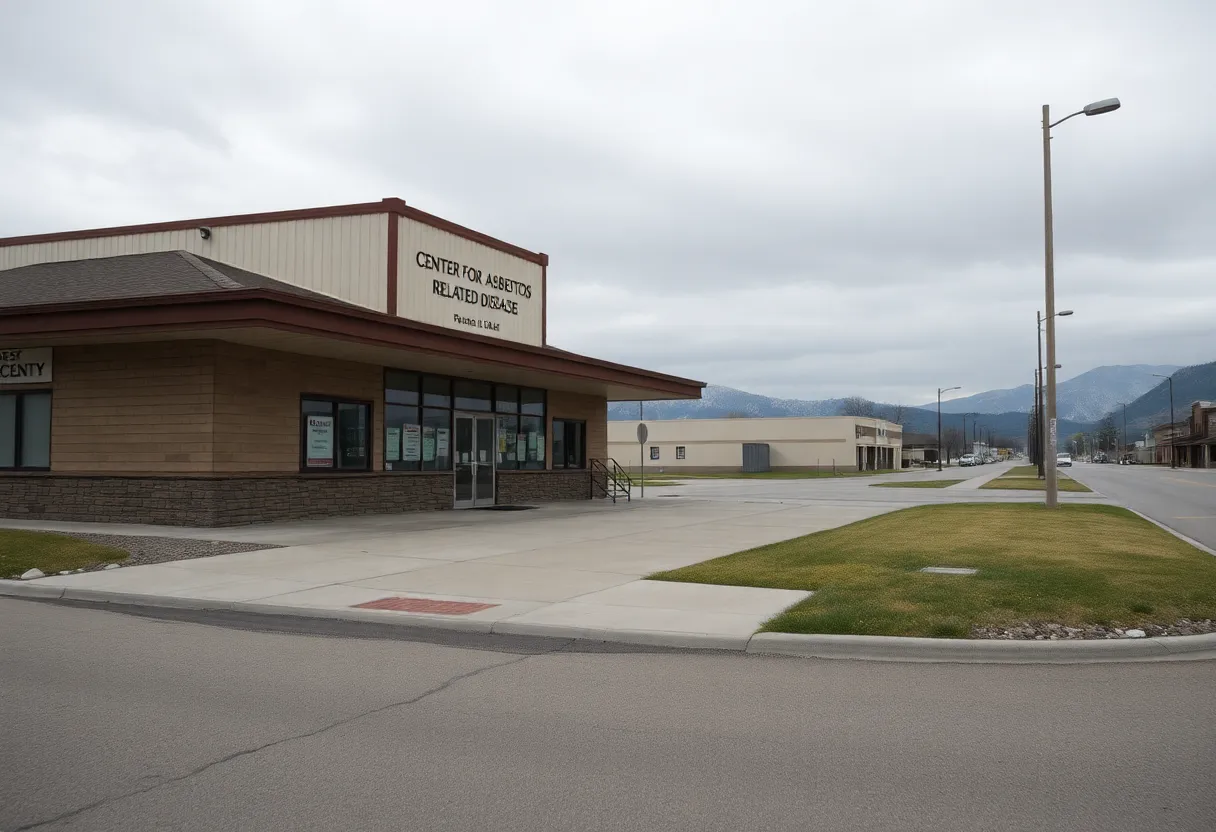News Summary
The Center for Asbestos Related Disease in Libby, Montana has closed, raising concerns over public health due to loss of essential screenings.
Closure of Libby’s Asbestos Screening Clinic Raises Public Health Fears
In a shocking turn of events, the Center for Asbestos Related Disease (CARD) in Libby, Montana, has been forced to close its doors, with the local sheriff’s office executing a court order to seize its assets. This closure follows a 2023 judgment in which BNSF Railway accused CARD of fraudulently certifying patients for government benefits, despite them not being diagnosed with any asbestos-related illness.
Impact on a Vulnerable Community
Libby has been a center of turmoil, grappling with the lingering effects of asbestos exposure due to decades of mining activities. The town, with a small population of roughly 3,000 residents, finds itself at the tragic convergence of health crises and legal battles. For over 20 years, CARD has been essential in providing health screenings, monitoring, and treatment for a community heavily affected by asbestosis and mesothelioma due to contaminated environments.
As the Lincoln County Sheriff’s Office conducted the seizure, there are growing fears among the community about the availability of critical health services. The clinic was a beacon of hope for many, addressing the needs of individuals affected by the devastating health impacts of asbestos. The potential loss of screenings could have severe consequences, putting the health of local residents at greater risk.
The Legal Drama Unfolds
The court ruling against CARD is notable; it determined that many of the diagnoses made by the clinic, with a total of over 2,000, were challenged by BNSF. Of those, 337 diagnoses were officially ruled false, adding weight to the court’s decision to enforce asset seizure. CARD had attempted to navigate the complexities of its bankruptcy while maintaining operations, arguing that efforts to collect on the fraud judgment conflicted with its bankruptcy settlement.
The financial implications of the judgment have been significant for CARD—totaling $3.1 million when accounting for additional fees and costs owed to BNSF. Even as CARD sought to continue operating, its executive management expressed concern that this closure would have dire repercussions for public health in Libby, expressing a continued commitment to serve the community that now finds itself without a crucial resource.
A Background of Asbestos Scandals
The history of asbestos exposure in Libby is intertwined with the operations of a local mine that produced asbestos dust for years. The contamination extends beyond the mine itself, impacting residential areas, with significant ties to BNSF’s rail yard—which has been reportedly linked to former residents diagnosed with mesothelioma, making public health a pressing concern. The Environmental Protection Agency (EPA) recognized the grave situation in 2002 by adding the Libby site to its Superfund program, and cleanup efforts are still ongoing.
Local officials are acutely aware of the downside to the clinic’s closure, not only affecting the 19 staff members employed there but also the healthcare access available to residents. A significant CDC grant that underwrites much of CARD’s operations hangs in a precarious balance, as funding reviews may determine the clinic’s long-term viability.
Community Fear and Future Uncertainty
The closure of CARD is reverberating throughout Libby, raising questions about the future of healthcare access and the entangling issues of industrial pollution and corporate responsibility. As efforts to mount a local lawsuit draw attention to potential malpractice claims against CARD for misdiagnoses and improper treatments, the community is left to ponder who is truly accountable for the health crises stemming from asbestos exposure.
While this chapter closes for the Center for Asbestos Related Disease, the conversation surrounding asbestos in Libby is far from over. The town’s resilience, burdened with the ghosts of asbestos exposure, sets the stage for an uncertain yet necessary dialogue on health, justice, and the ongoing fight against the legacy of industrial neglect. The fate of Libby’s residents hangs in the balance, spotlighting a community’s struggle for justice amidst corporate and legal battles.
Deeper Dive: News & Info About This Topic
HERE Resources
Libby, Montana Loses Vital Asbestos Clinic Amid Controversy
Major Setback for Libby, Montana: Asbestos Screening Clinic Faces Closure
Closure of Asbestos Clinic Sends Shockwaves Through Libby, Montana
Disaster Strikes LIBBY: Asbestos Screening Clinic SHUT DOWN Amid Legal Chaos
Bestwall LLC Appeals Bankruptcy Ruling in Asbestos Liability Case
Closure of Asbestos Help Clinic Shakes Small Montana Town
The Asbestos Crisis in Libby Takes a New Turn: CARD Faces Financial Ruin
The Closure of CARD: A Troubling Chapter for Libby’s Asbestos Victims
Asbestos Corporation Ltd. Faces Legal Turmoil Amidst Mesothelioma Allegations
Clinic Closure Sends Shockwaves Through Libby, Montana



















